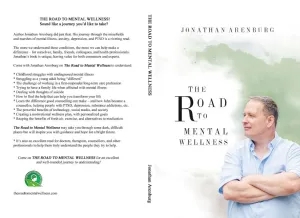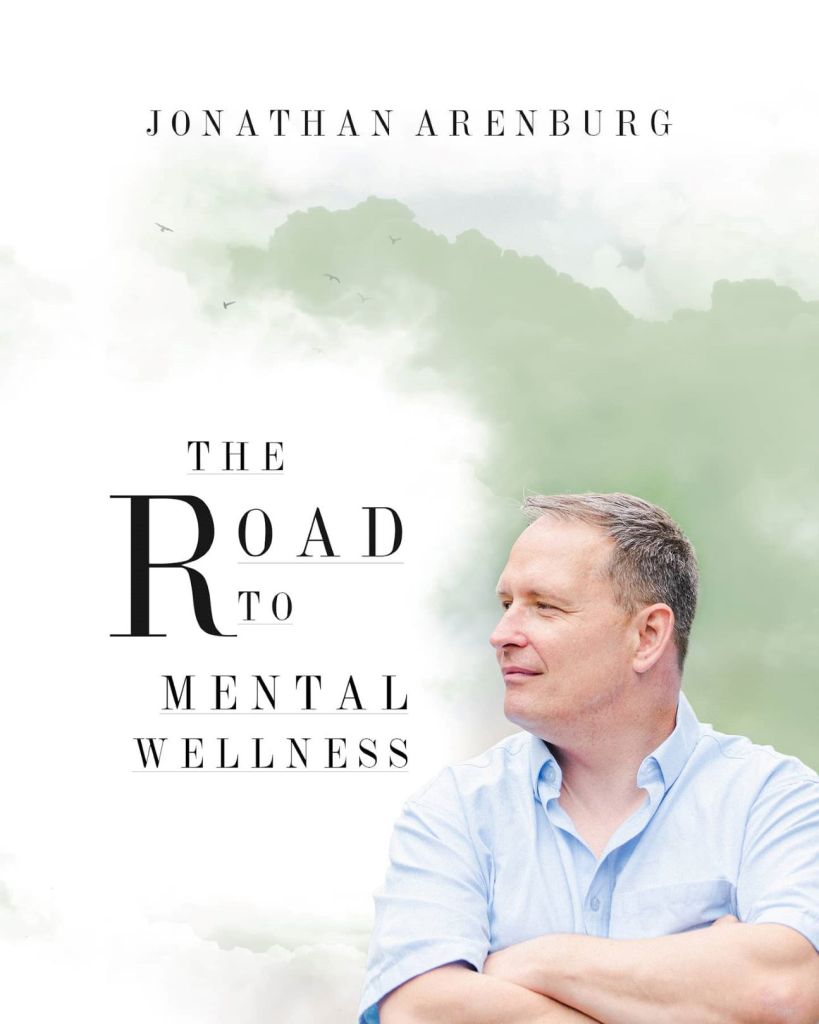Follow us
Doing The Opposite for Better Mental Health Improve your mental health by doing the opposite of what you normally do! Discover the benefits of breaking free from old habits and embracing change in this blog post.
In many of my podcast appearances and speaking engagements, I talk about doing the opposite of what we are doing now if we want to achieve better mental health. Similarly, when I talk about “doing the opposite” I am always asked, “Can you please expand on what you mean by doing the opposite?”
It’s a great question, what do I mean? Well in this context, we humans aren’t exactly doing what’s best for us. Not by a long shot. In fact, we are actively engaging in activities that we know aren’t good for us. Some are outright obvious, whilst others, not so much. How then can we discover what they are? Moreover, how can we go about fixing them?
Now, you can listen to our posts – go to our Audio blogs page.
Sounds easy right? Well, no. What’s more, doing things in a polar opposite fashion is very complicated, at least in my view. I mean, on the surface it sounds really easy. Have a drinking problem? Just don’t drink. A simplistic answer for a very complex problem.
So then, just what the hell am I talking about? Well, let me explain.
My concern is the way in which we have established our lives. For all intents and purposes, the world we now inhabit is incompatible with our biological selves. In other words, we just aren’t designed to eat the way we do now, we tend to run off as little sleep as possible, and we certainly aren’t built for the Monday to Friday grind.
Perhaps a better way of looking at our modern-day self-destructive lifestyles is the damage the smartphone has had. Nothing about having the addictive algorithm in our pockets is normal for us. Essentially, it’s an attention shortening, social growth impeding, ad flyer that is a driver for depression, anxiety, and division. Yet somehow, we NEED THEM! Sadly, we might not see the damage things like mobile social media apps are unquestionably having on our mental health.
The Negative Impacts of Cellphones on Our Mental Health
What’s worse, is that we may not be aware of other reasons for our mental health decline. Excessive noise for example. Sure, it may not seem like it’s harmful, but in reality, our brains were never designed for such a constant cacophony of the goings on around us. While some may say, “I just tune it out,” or “I get used to it,” it appears that it still wreaks havoc. Just because you don’t notice, doesn’t mean your brain isn’t feeling its effects. In other words, that high anxiety you’re feeling? Excessive noise may be the cause.
In fact, noise pollution, or exposure to unwanted or harmful levels of sound, is a growing concern in today’s fast-paced and urbanized world. It can have significant impacts on our mental health and well-being, affecting our daily lives in various ways. Understanding the relationship between noise and mental health is essential to address this issue and promote healthier living environments.
Effects of Excessive Noise on Our Mental Health
- Stress and Anxiety: Exposure to excessive noise can lead to elevated stress levels and anxiety. When we are exposed to loud noises, our body responds by releasing stress hormones like cortisol and adrenaline. Over time, increased stress can contribute to the development of anxiety disorders, depression, and other mental health issues.
- Sleep Disturbances: Adequate sleep is essential for maintaining good mental health. However, noise pollution can disrupt our sleep patterns and prevent us from getting the restorative sleep we need. This can lead to sleep deprivation, irritability, difficulty concentrating, and even an increased risk of developing mood disorders such as depression.
- Cognitive Impairment: Chronic exposure to high noise levels can negatively affect our cognitive abilities. Studies have shown that children living in noisy environments may experience delays in language development, reading comprehension, and memory skills. In adults, noise can lead to decreased concentration, reduced productivity, and impaired decision-making abilities.
- Emotional Well-being: Constant exposure to noise pollution can make people feel more irritable, frustrated, and agitated. These emotional responses can strain relationships and contribute to social isolation, which is a known risk factor for various mental health issues.
- Tinnitus: Prolonged exposure to loud noise can lead to tinnitus, a condition characterized by a persistent ringing or buzzing in the ears. This can be incredibly distressing for those who experience it and can contribute to anxiety, depression, and sleep disturbances.
8 signs your relationship is hurting your mental health.
To mitigate the impact of noise on mental health, it is essential to adopt preventive measures and create awareness about the issue. Here are some steps that can help:
- Advocate for noise regulations in residential and commercial areas.
- Encourage the use of noise-reducing materials and designs in urban planning and architecture.
- Use noise-canceling headphones or earplugs when necessary to minimize exposure to excessive noise.
- Maintain a quiet and calm living environment at home to reduce stress and promote relaxation.
- Seek professional help if you are struggling with mental health issues due to noise pollution.
Download the audiobook version of the book, The Road To Mental Wellness FREE (CH’s 1 through 5 Here)
How does this tie into doing the opposite for better mental health? Well, as far as I can tell, it’s one of the best examples we can use. It’s a great example because we may love the sound of our motor bikes for example, despite the fact that they contribute greatly to noise pollution. Yet, noisy bike enthusiasts fight like hell to make sure they get to ride them. And this is despite the evidence we have that noise is a mental health killer.
Humans appear to have a varying degree of self-awareness. That’s why you often see someone blasting a YouTube video at the table across from you in an otherwise peaceful restaurant. Sure, it could be that they lack common courtesy, but some are simply oblivious to others around them.
Same goes for the motorbike example. Owners of the loudest producing machines fail to understand that most people don’t want to hear it. And if that weren’t enough, a single rider doesn’t account for the fact that the rest of us have to endure that incessant rumble from several bikes a day.
Top Blog Posts:
- Connection and Recovery – Discover the power of human connections in the journey towards mental wellness.
- Self-Love: It Matters for More Reasons Than You Think – Learn the importance of self-love and how it can impact your overall well-being.
- Trauma Block: What Is It and How Can It Be Minimized? – Understand the concept of trauma block and explore strategies to cope with its effects.
- How to Build Resilience for Better Mental Health – Gain insights on developing resilience to enhance your mental health and well-being.
- PTSD and Service Dogs: How They Can Help with Your Recovery – Explore the benefits of service dogs in supporting individuals with PTSD on their path to recovery.
- The Stop Depression Summit: A Summit Worth Attending – Discover the value of attending the Stop Depression Summit, a gathering focused on mental health and depression.
However, if we all worked together to make these monster machines quieter, we would be doing us all a favor. Yes, including the riders. Remember, just because you don’t realize it could be hurting your mental health, doesn’t mean that it’s not. Therefore, if we want to improve the overall mental well-being of everyone, we must do the opposite. In this case, work together to make bikes both fun to ride and quieter.
Need help? Go to Our Mental Health Resources Centre
Personally, I feel it doesn’t matter what a particular person may want, rather, what’s more important is the wellness of those around us. Sadly, people today appear to have a zero-tolerance policy when it comes to compromise. And in my view, it’s having a huge impact on all of our quality of life. Again, whether you know it or you don’t, whether you care about others or yourself, your afternoon ride is not as harmless as you think.
In the end, I only wish the people in this world would learn that doing what’s best for everyone is ultimately great for them too.
Passionate about helping soften the blow to all our mental well-being? learn about what impacts us the most and actively work to help solve the problem. Just because you love something doesn’t mean you shouldn’t compromise for the betterment of all.
Some of the Most Common Things That Impacts Our Mental Health Include:
- Chronic stress: Prolonged exposure to stress can lead to mental health issues like anxiety, depression, and burnout.
- Traumatic events: Experiences such as abuse, accidents, or natural disasters can result in post-traumatic stress disorder (PTSD) or other mental health challenges.
- Substance abuse: Misuse of alcohol, drugs, or prescription medications can worsen existing mental health conditions or lead to new ones.
- Sleep deprivation: Lack of quality sleep can exacerbate mental health issues, reduce cognitive function, and impair emotional regulation.
- Social isolation: Limited social interaction or feelings of loneliness can contribute to depression, anxiety, and other mental health issues.
- Poor nutrition: An unhealthy diet can negatively affect brain function, mood, and overall mental health.
- Lack of physical activity: Sedentary lifestyles can increase the risk of developing depression, anxiety, and other mental health problems.
- Financial stress: Worrying about money, debt, or job security can lead to anxiety, depression, and other mental health challenges.
- Unhealthy relationships: Toxic or abusive relationships can cause significant emotional distress and contribute to mental health issues.
- Discrimination and prejudice: Experiencing discrimination or prejudice based on factors such as race, gender, or sexual orientation can lead to anxiety, depression, and whole host of other mental health problems.
We all have the power to do our part to alleviate the mental pain and suffering of all those in our neighbourhoods, our nations and for all those around the world.
Please, do you part.
Here is a list of resources for further reading on the effects of noise on mental health:
- Basner, M., Babisch, W., Davis, A., Brink, M., Clark, C., Janssen, S., & Stansfeld, S. (2014). Auditory and non-auditory effects of noise on health. The Lancet, 383(9925), 1325-1332.
- Stansfeld, S. A., & Matheson, M. P. (2003). Noise pollution: non-auditory effects on health. British Medical Bulletin, 68(1), 243-257.
- Ising, H., & Kruppa, B. (2004). Health effects caused by noise: Evidence in the literature from the past 25 years. Noise and Health, 6(22), 5-13.
- Münzel, T., Gori, T., Babisch, W., & Basner, M. (2014). Cardiovascular effects of environmental noise exposure. European Heart Journal, 35(13), 829-836.
- Lepore, S. J., & Evans, G. W. (2010). Coping with multiple stressors in the environment. In The Oxford Handbook of Environmental and Conservation Psychology, pp. 378-404. Oxford University Press.
- Fyhri, A., & Aasvang, G. M. (2010). Noise, sleep and poor health: Modeling the relationship between road traffic noise and cardiovascular problems. Science of the Total Environment, 408(21), 4935-4942.
- Clark, C., & Stansfeld, S. A. (2007). The effect of transportation noise on health and cognitive development: A review of recent evidence. International Journal of Comparative Psychology, 20(2), 145-158.
- Passchier-Vermeer, W., & Passchier, W. F. (2000). Noise exposure and public health. Environmental Health Perspectives, 108(Suppl 1), 123-131.
- Hammer, M. S., Swinburn, T. K., & Neitzel, R. L. (2014). Environmental noise pollution in the United States: Developing an effective public health response. Environmental Health Perspectives, 122(2), 115-119
Learn to Manage and Thrive
- His lifelong battle with depression
- The benefits of exercise
- How to start to overcome the dread and exhaustion of depression
- How small steps make huge differences
- Scientifically backed techniques to help minimize depression, anxiety, and PTSD’s effects
- How to set boundaries with yourself when you have a mental health condition·
- How to optimize living your life with these debilitating mental illnesses.

Follow us



Please leave a comment and tell us what you liked about what you read.